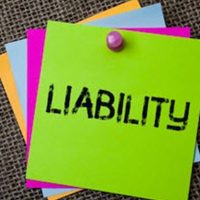Holding a Landlord Responsible for Injuries on Apartment or Rental Property

Often, when we are injured, we are injured at or around where we live. When we do, we often assume that it’s our fault—after all, it’s our home or our property where we were injured. While that may or may not be true depending on the situation, when it comes to injuries sustained where we live when we rent property, the landlord may be the one that can be held responsible for injuries.
A landlord is no different than any other person who owns property and who is sued for dangerous conditions on their property. A landlord has an obligation to keep its property safe and to warn of dangers that are known or knowable, just like anybody else.
Where Were You Injured?
When we are injured in or around your apartment, the first question is ask is whether you were actually injured inside your unit or rental, or whether you were injured on the common areas of the property—areas like parking lots of swimming pools or playgrounds, or the areas that all tenants on the property share between them.
If you are injured inside your unit, liability for the landlord largely depends on your rental contract, and who is made responsible for what was the dangerous condition on the property.
So, for example, let’s assume that you were injured because a smoke detector or a fire extinguisher didn’t work properly inside your unit. Those are largely things that the landlord takes care of and maintains. Or, assume that water intrusion from the roof leaked inside the unit. That is something in the landlord’s control.
In those cases, the landlord could have some liability for your injuries. But be aware that sometimes, if you know of a defect in advance you may have a contractual obligation under the lease to inform the landlord to give the landlord time to fix and repair the dangerous condition.
Injuries on Common Areas
Outside the unit or living area, on the common areas, the analysis is a bit easier, because it’s always the landlord that has control over those areas, not the tenant. Some common ways people get hurt in the common areas of apartments include:
- Injuries on poorly maintained stairs, balconies or railings
- Injuries on the actual grounds, such as holes in the grass, or overgrown tree roots that cause dangers
- Injures in or around swimming pools or playgrounds
- Exposure to toxins in the air, which may include asbestos or radon or other similar chemicals
The analysis there is the same as if you fell (or were injured any other way) in a grocery store or a mall.
Negligent Security Claims
You may even have a claim against your landlord for criminal activity that causes you injury, if the premises did not have adequate security, or if the security in place, like gates or locks on your doors, were inoperable.
Injured on rental property or on a landlord’s property? Call the Boston personal injury lawyers at The Law Office of Joseph Linnehan, Jr. today at 617-275-4200 for help with every step in your personal injury case.
Sources:
scholar.google.com/scholar_url?url=https://heinonline.org/hol-cgi-bin/get_pdf.cgi%3Fhandle%3Dhein.journals/aklr17%26section%3D33&hl=en&sa=X&ei=90stZuXBKJSCy9YP29Cc0AY&scisig=AFWwaeamPgVcoa0jOjvMsnRUQ0-u&oi=scholarr
justia.com/injury/premises-liability/negligent-inadequate-security/
